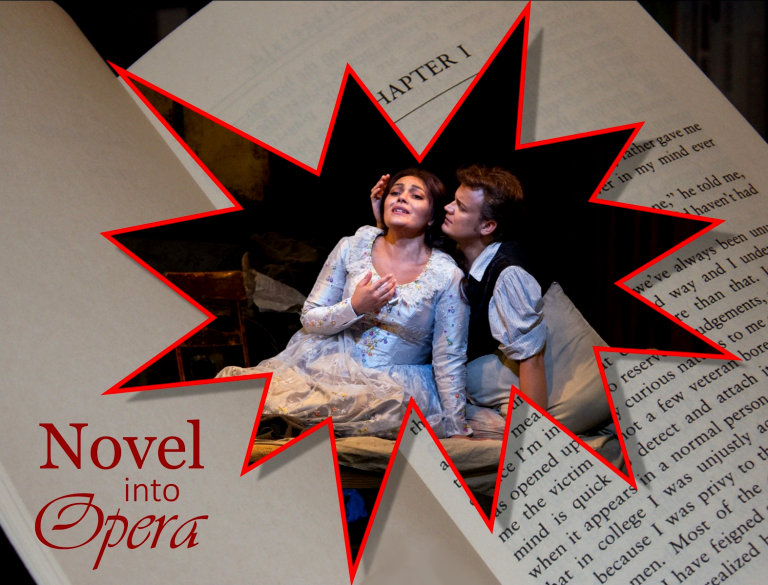| Handout (flat) Handout (folded) Script Synopsis | Return to Index |
The good news is that there are a lot of Carmens out there, both complete and in excerpts. The less good news is that
rather few of the clips shown in class are available. I have *asterisked the ones that are, and
offered the next best thing for the rest. The major lack, so far as the topic of this class is concerned, is that nobody posts
excerpts of dialogue; however, I have included the Seguidilla scene from a production at Covent Garden, which does include
spoken words.
At the other end of the scale, I have just discovered the third video listed below. It is a spectacular production in the vast Earls Court Arena in London, with hundreds of dancers and extras but no visible orchestra. The Carmen is the hyper-dramatic Maria Ewing, a renowned interpreter of the role. The production uses recitatives, and there are English titles throughout. The video shows its age, however.
For the Calixto Bieito production, I include samples of the English National Opera production in English, and also some clips from the same production elsewhere. I strongly recommend watching the final scene from Paris in his staging, with the same protagonists, Garanca and Alagna, as in the Met version; if you doubt its power, just look at the expression on the face of the conductor, Sir Mark Elder, after the curtain falls!
Carmen Jones is available in clips only, but they include much of what we saw. You have to put up with titles in a
variety of languages, though, or none at all. rb.
| COMPLETE CARMENS WITH ENGLISH TITLES | |||
| Richard Eyre, Met |
* Acts 1 and 2 * — cued to scene watched in class (version with recitative) * Acts 3 and 4 |
||
| Francesca Zambello, London |
* Acts 1 and 2 * — cued to same scene as above (version with dialogue) * Acts 3 and 4 |
||
| Steven Pimlott, London | * Complete opera (Earls Court Arena) | ||
| OTHER PRODUCTIONS SAMPLED IN CLASS | |||
| Martin Kusej, Berlin |
* Trailer
(no titles) * Habanera (no titles) * Final scene (very poor video, French titles) |
||
| Calixto Bieito, ENO |
* Trailer
(in English) * Habanera (in English) * Acts 3 and 4 (cued to scene watched in class) |
||
| Calixto Bieito, elsewhere |
* Trailer
(Vienna) * Complete (Palermo, no titles) * Final scene (Paris; watch conductor at end!) |
||
| LA TRAGÉDIE DE CARMEN | |||
| Peter Brook | * Complete film (with English titles) | ||
| CARMEN JONES | |||
| Otto Preminger film |
* Trailer * Habanera (English titles) * Joe & Cindy Lou duet (Spanish titles) * Seguidilla (no titles) * Night club scene (no titles) * Final scene (Portuguese titles) |
||
| IMAGES | |||||
| The thumbnails below cover the slides shown in class. Click the
thumbnail to see a larger image. Click on the right or left of the larger picture to go forward or back, or outside it to close. |
|||||
 |  |  | |||
 |  |  | |||
 |  |  | |||
 |  |  | |||
 |  |  | |||
